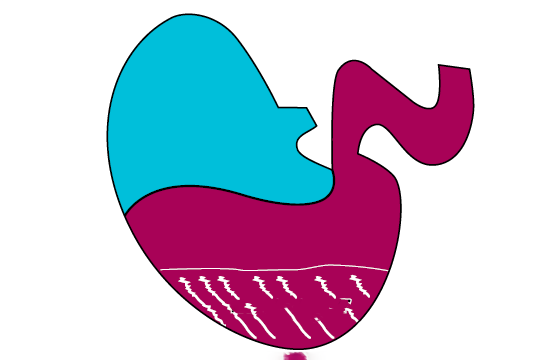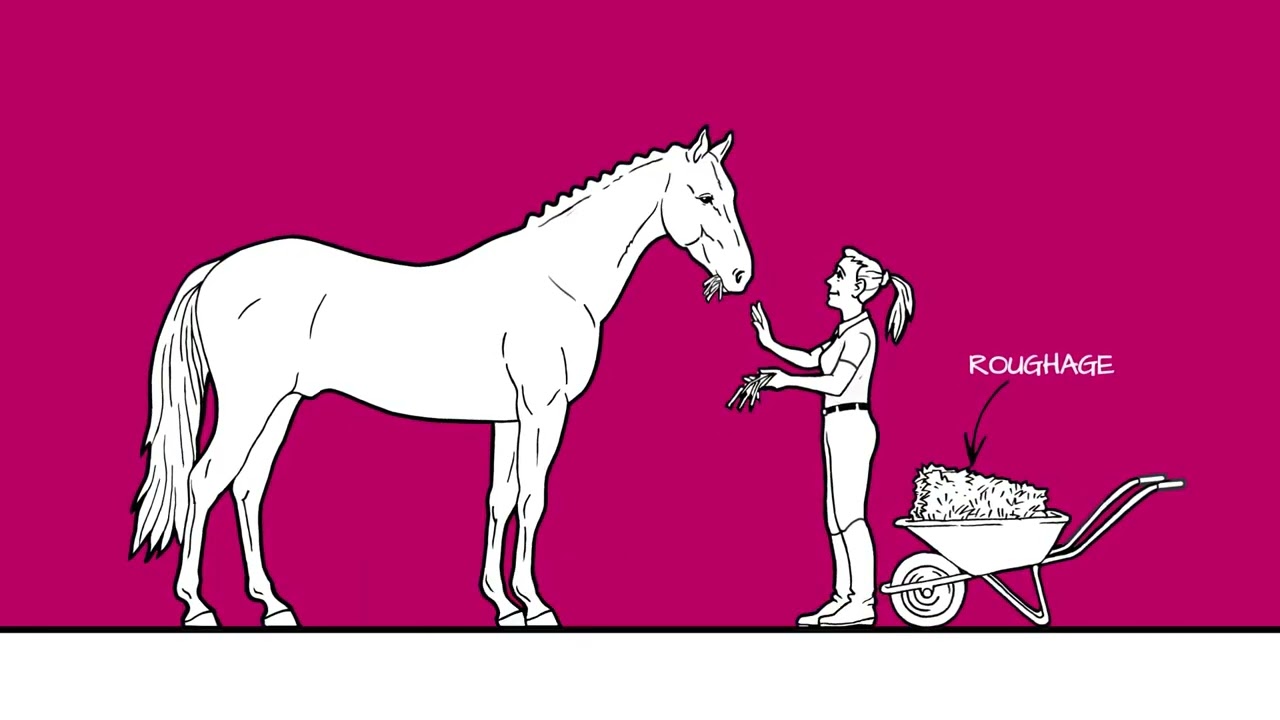
How does the stomach of the horse work?
Under natural circumstances, horses eat small portions of fibre-rich materials throughout the whole day. Therefore, the digestive tract has been adapted to this natural foraging behaviour. Unlike other animal species, horses do not continuously produce saliva, which contains the acid buffering bicarbonate, but only while chewing. Therefore, it is very important that horses have access to roughage throughout the whole day, so that there is an (almost) continuous flow of buffering saliva to the stomach.
The stomach, which is relatively small compared to other animal species, has been adapted to a relatively fast passage of small portions of food towards the small intestines. The lower half of the stomach is lined with a glandular mucosa, which produces the gastric acid. Also special about horses is that the gastric acid is not only produced while eating, but gastric acid is being produced continuously. This gastric acid is needed to help reducing particle size of the feed, to function as a suitable environment for digestive enzymes and besides for elimination of undesired micro-organisms that enter together with the ingested food.
The upper part of the stomach is lined with a different kind of tissue, which is less resistant against the stomach acid. Around the transition between these two tissue types is often where the gastric ulcers develop (see below for symptoms). Because of the constant production of stomach acid and the saliva production only while chewing, it is important that horses have access to roughage spread throughout the day, without long intervals between the feedings. By adapting the management and feeding practice of our domesticated horse to their natural behaviour, gastric problems, such as gastric ulcers, can be minimized.


"Stomach ulcers are common in horses and ponies. Research shows that at least 60% of all sport horses suffer from this"
Pleun Broeren, nutritionist
Risk factors
There are some risk factors for the development of gastric ulcers. Like previously mentioned, feeding not enough roughage, feeding big concentrate meals, feeding concentrates high in sugar and starch, and the horse experiencing stress are some risk factors. Also, the use of certain medicines can increase the risk of developing gastric ulcers, since some medicines affect the protective ability of the stomach wall. Furthermore. intensive training may cause increased contractions of the stomach, which causes the acid content of the stomach to affect the upper (more sensitive) region of the stomach. However, training on an empty stomach is also a risk, since there is no buffering layer present in the stomach that prevent splashing of the acid against the upper sensitive part.

